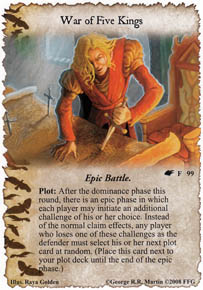


In accordance with this principle, the sages teach the following (Bereshit Rabba 42:7): Rabbi Elazar bar Avinah says, ‘If you see kingdoms engaging each other in conflict, anticipate the appearance of the Messiah. Therefore, it must be that they have some connection to Abraham, the father of the Nation of Israel, whose purpose it is to reveal God’s sovereignty. We must conclude that the sages wish to teach us how to understand the monumental events which take place in the world - that all of them transpire in order to clarify God’s reign. This is reflected in the words of the Midrash, "The words, ‘and to slay such as are of upright ways,’ refer to Abraham." Yet, how is it possible to reach a similar conclusion based upon a simple and straightforward understanding of the scriptures, which tell of a attempt by five kings to gain control over land and enslave nations and how, when the five kings revolted, the four kings marched against them, defeated them and reestablished control? Is it really possible to interpret all of this as an attempt to capture Lot in order to draw Abraham into war against them in order to kill him?

The sages, in their great wisdom, understood that this "world war" was entirely for the sake of the patriarch Abraham. Their sword shall enter into their own heart." The words, "The wicked have drawn out the sword," refer to Amraphel and his cohorts the words, "to cast down the poor and needy," refer to Lot the words, "and to slay such as are of upright ways," refer to Abraham "Their sword shall enter into their own heart" refers to that which is written: "He divided against them that night - he and his servants" (Genesis 14:15). Rabbi Yehoshua of Sakhnin spoke in the name of Rabbi Levi, saying (Psalms 37:14): "The wicked have drawn out the sword and have bent their bow to cast down the poor and needy, and to slay such as are of upright ways. "And it came to pass in the days of Amraphel king of Shinar." (Genesis 14:1). It would appear that the answer to this question lies in the following Midrash (Bereshit Rabba 42:1): And the question therefore begs to be asked: What is so important about this particular battle that caused the Torah to describe it in such detail? Could it be that all of this information is important to know in order that we better appreciate the miracle of Abraham’s victory over the four kings who were so mighty that they managed to defeat the five?! Such an explanation, though, is not satisfactory, for why should scripture have had to go into such detail regarding a war which on the face of things is so unrelated to Abraham, the forefather of the Jewish people, if it contains no lesson for us whatsoever? This week’s Torah portion describes at great length the war between the four and five kings, detailing their names and lands.


 0 kommentar(er)
0 kommentar(er)
